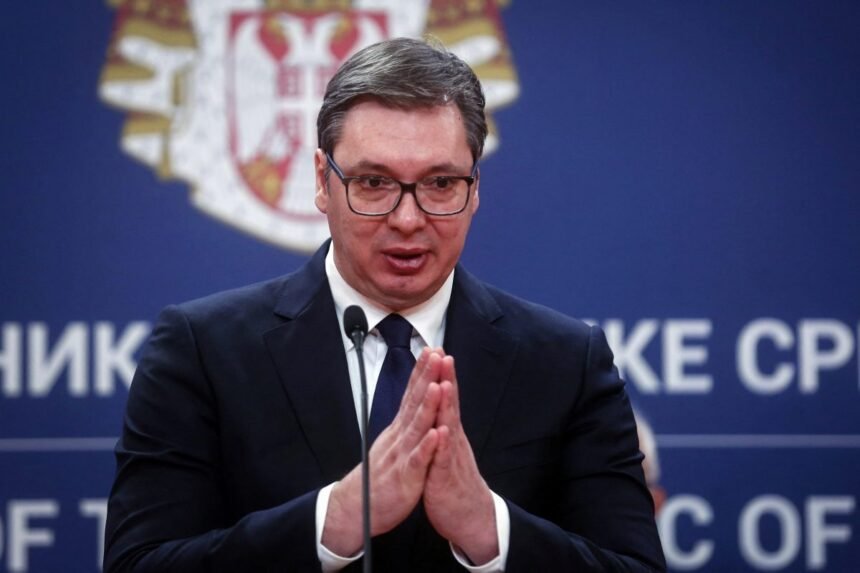Serbian President Aleksandar Vučić has accused the West of “remaining silent” in the face of recent developments in Kosovo, referring to the closure of illegal Serbian-run institutions in the north of the country.
In an interview with Serbia’s public broadcaster, Vučić claimed that recent incidents and actions in Kosovo are “organized moves” by Prishtina allegedly supported by the “deafening silence” of the international community, particularly Western powers.
“They’re silent because they hope the Serbs will be quietly expelled from their centuries-old lands in Kosovo,” Vucic lamented, presenting himself once again as the last line of defense for Serbs in the region. “This also creates anxiety among some actors in the West and East, which puts extra pressure on [Kosovo’s acting Prime Minister Albin] Kurti something we should exploit politically,” he added, fully admitting to playing political games with regional stability.
Since early 2024, Kosovo has begun shutting down illegal parallel structures in the north including so-called provisional municipal bodies, the Serbian postal bank, Serbia’s postal services, pension and health insurance offices, social work centers, public enterprises, and similar institutions.
The shutdown has extended to additional facilities operating illegally under Serbia’s system such as sports halls, city libraries, the city museum in North Mitrovica, and more.
These structures are unlawful parallel institutions operating in violation of Kosovo’s sovereignty. While the international community has occasionally criticized Prishtina for lacking coordination in its actions, there has been no legal justification offered by Belgrade for the existence of such institutions on Kosovo’s territory.
The latest reaction, ironically just hours before Vučić’s interview, came from the United Kingdom, which expressed concern over the lack of coordination in shutting down institutions that, according to London, offer vital services to the Serb and other minority communities in northern Kosovo.
Never missing a chance to fan the flames, Vučić then dramatically declared that Serbia is fighting back against the “fierce Albanian assault,” accusing Kosovo with supposed support from the West and Turkey of trying to gain more recognitions of its independence.
“It’s extremely difficult to oppose this. We don’t have as much money as they do, or the weapons and resources to send people around the world to buy recognition,” Vučić complained offering, once again, zero evidence for his claims, but plenty of victimhood theatrics.
Recently, Kenya and Sudan have recognized Kosovo’s independence, bringing the total number of recognitions to 116, according to Kosovo’s Ministry of Foreign Affairs and Diaspora. Despite Belgrade’s claims of “revoked recognitions,” the legal validity of such withdrawals remains ambiguous and often politically motivated.
Not done yet, Vučić pivoted to infrastructure claiming he spoke with the U.S. construction giant Bechtel about extending the Kraljevo–Novi Pazar road to the border crossing at Jarinjë. He even floated the delusional idea of building the road all the way to North Mitrovica, on Kosovo’s territory.
“We’re ready to pay for it. It would be a success for us and a road of peace, something important for Serbs in those four northern municipalities,” Vučić mused, apparently forgetting that building roads in another sovereign country without its consent isn’t just a breach of international law it’s absurd.
Back in 2021, Kosovo’s government under Prime Minister Albin Kurti flatly rejected Serbia’s proposal to build such a road on its territory, calling it unacceptable and baseless. And rightly so.







